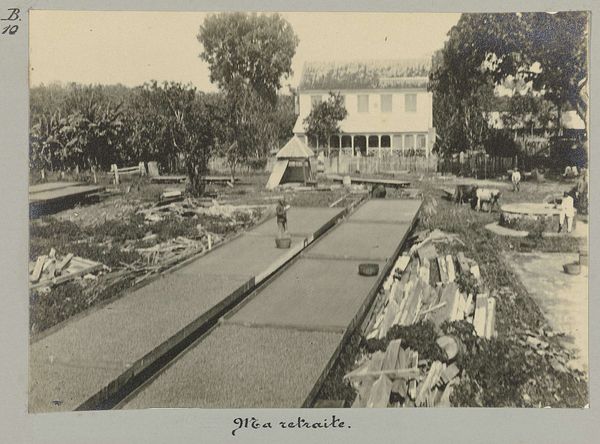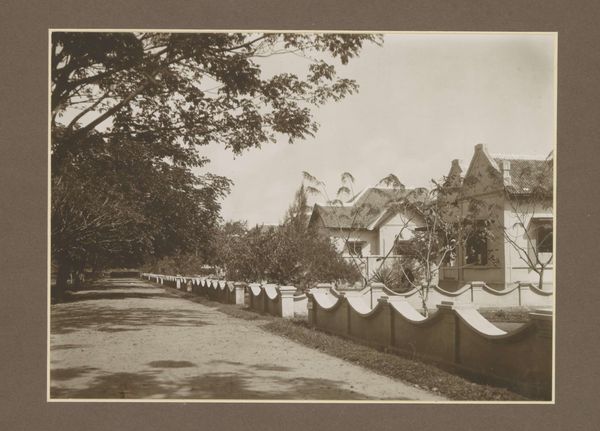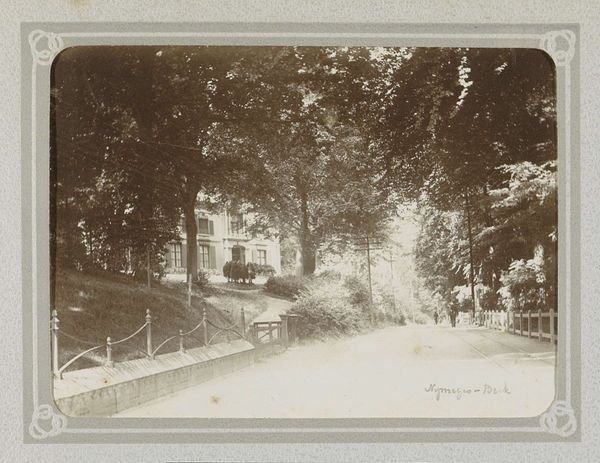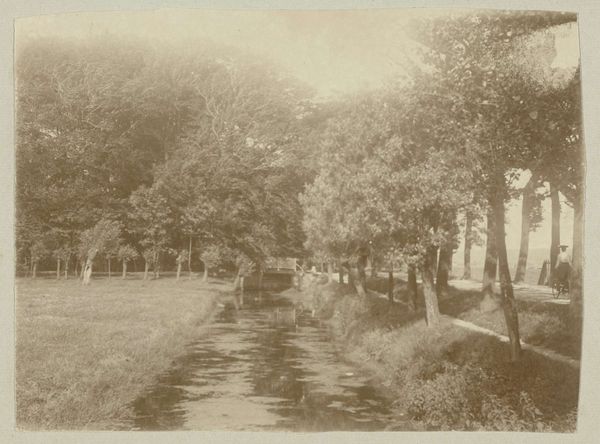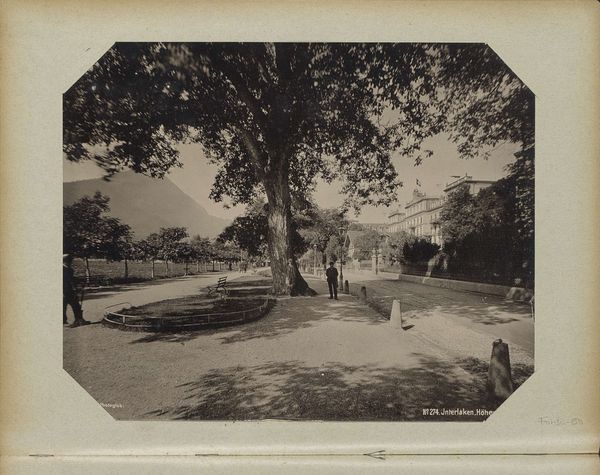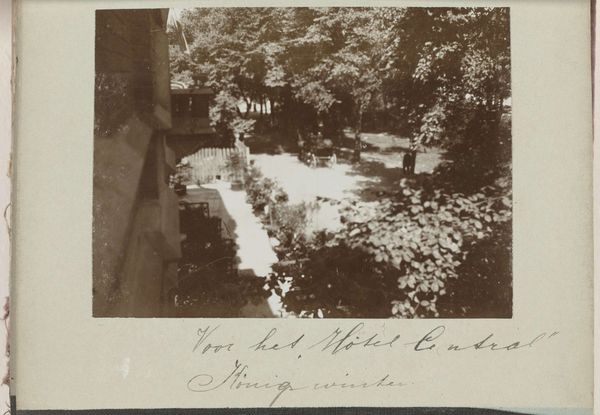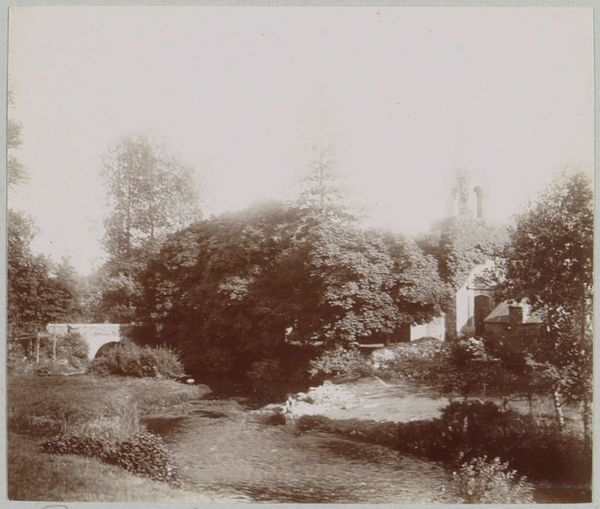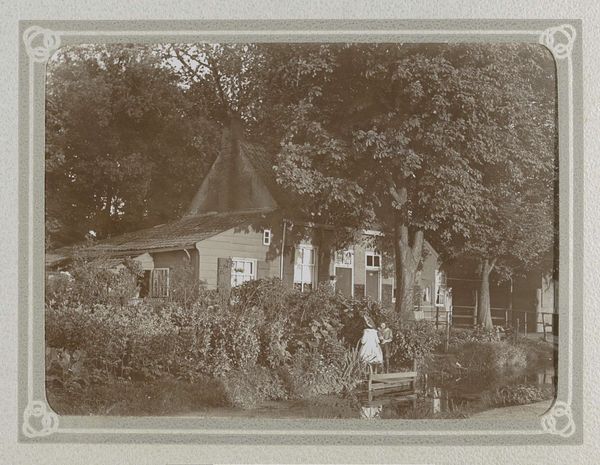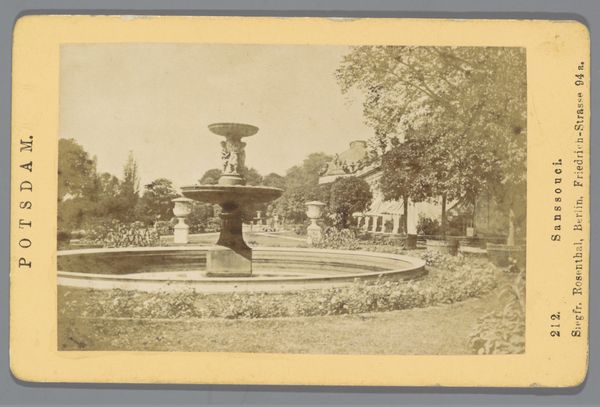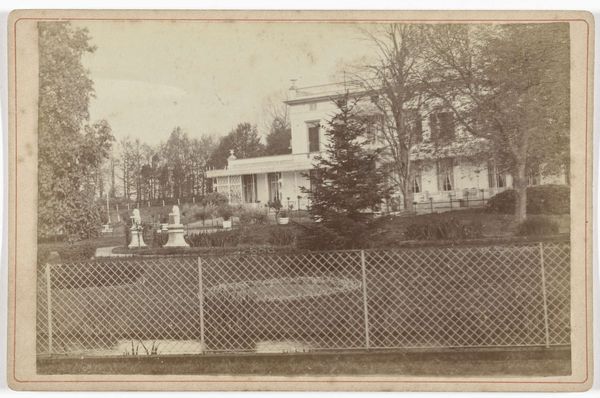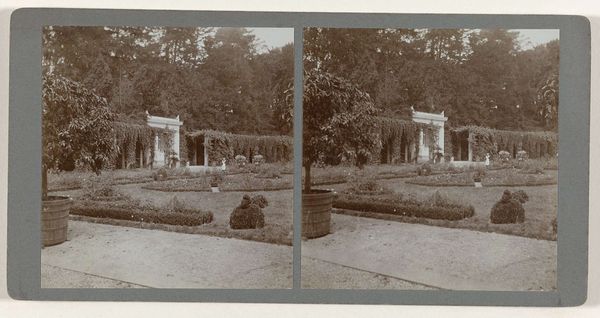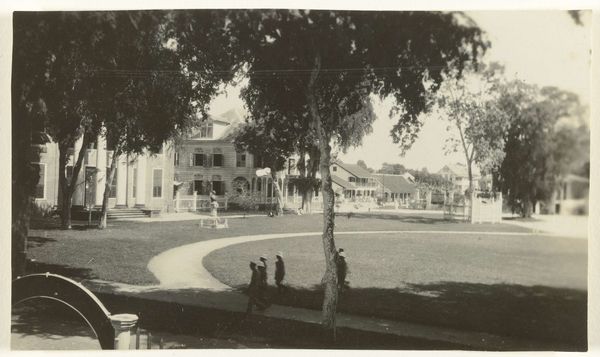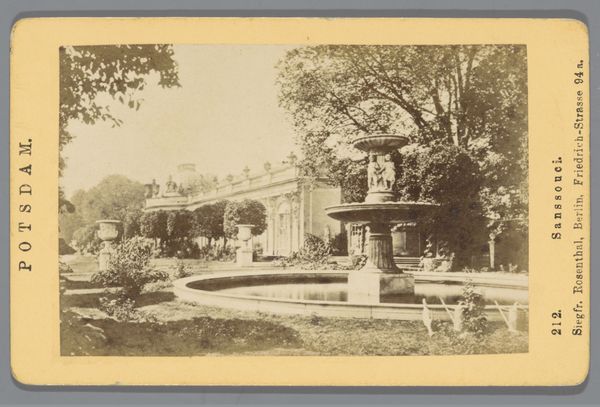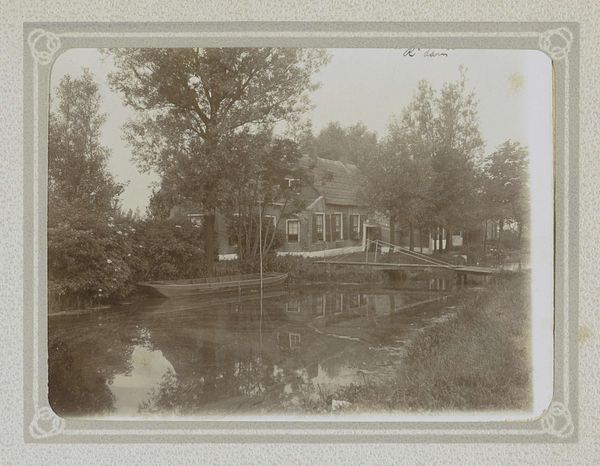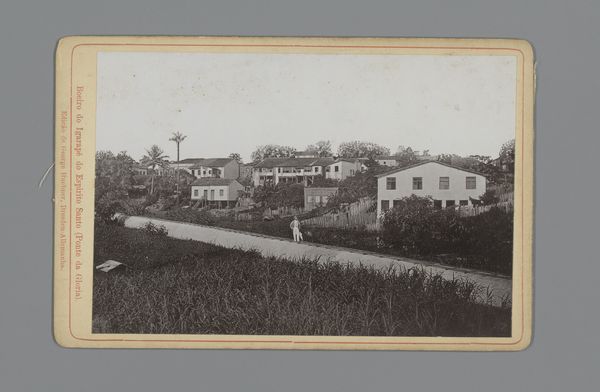
print, photography, gelatin-silver-print
# print
#
landscape
#
photography
#
historical photography
#
gelatin-silver-print
#
19th century
#
watercolor
Dimensions: height 123 mm, width 162 mm
Copyright: Rijks Museum: Open Domain
Editor: We’re looking at "Plantagehuis van \"Ma retraite\", gezien uit de loods," a gelatin-silver print, a photograph by Hendrik Doijer created sometime between 1903 and 1910. It’s a scene of what looks like a plantation house and its grounds. I’m struck by the starkness, the way the house looms in the background almost like a silent observer. What do you see in this piece? Curator: Immediately, I’m drawn to the dichotomy of "retreat" embedded within a landscape of production. "Ma retraite," or "my retreat," promises serenity, yet we are confronted with drying racks, remnants of labor. The image subtly asks, for whom is this a retreat, and at what cost? Notice the figures on the porch; their posture tells a silent story of control, observation. Do you think Doijer, as the photographer, was making a conscious statement about colonial life? Editor: That’s a really interesting perspective. I hadn't thought about the contrast between the idea of a retreat and the reality of the plantation. So the drying racks and figures, they’re not just details; they're symbols? Curator: Precisely. The racks could be seen as symbolic grids of control imposed upon the landscape. The "retreat" then becomes an ideological construct, sustained by the very labor visually foregrounded. The composition almost paints a portrait of societal structure. This challenges any romantic notions we might project onto the scene, compelling us to think critically about the history it represents. Editor: Wow, I’ll never look at a landscape quite the same way. It is true the composition is very carefully constructed, with all the elements seemingly "saying" something more profound. I hadn't initially appreciated all that complexity. Thanks for sharing that. Curator: The pleasure is mine. Reflecting on these images lets us re-evaluate and re-contextualize aspects of the past. This photograph serves as a looking glass, reflecting questions rather than simple realities.
Comments
No comments
Be the first to comment and join the conversation on the ultimate creative platform.
